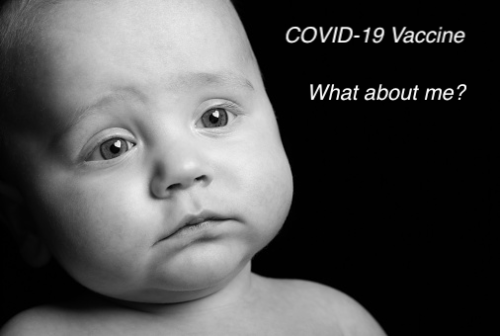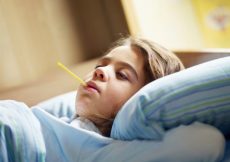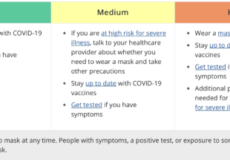November 16th, 2021
In March we learned that clinical trials were underway to determine the efficacy and safety of COVID-19 vaccines for children. At that time, only the Pfizer vaccine was approved for use down to 16 years of age. (Moderna and Johnson & Johnson vaccines continue to be available for adults 18 and up.) Since then, Pfizer’s trial successfully demonstrated that two doses of 10 micrograms was safe and effective for children 5-11 years old. Earlier this month, the Pfizer vaccine was authorized by the FDA and CDC for use in that age group and as we’ve already seen, the reaction pediatricians have received from parents with young children has been extremely positive.
Pfizer still has two more clinical trials underway for kids under 5. The results of their study for 2 to 5-year-olds are expected to be available by the end of the year. A study looking at children between 6 months and 2 years of age might be completed early next year. Moderna and Johnson & Johnson are also studying their vaccines for use in children, but Pfizer has been ahead of the game since their vaccine was the first to be authorized for use for everyone 16 and up last December.
Now that kids who are 5 and over are getting the vaccine, much to the relief of pediatricians and parents everywhere, when will their younger siblings be able to get their chance for immunological protection against SARS-CoV-2? Kaitlin Vogel says it shouldn’t take long once the data from the vaccine trial are analyzed and approval is granted:
“I’m optimistic that it’s coming soon as we’ve gone down in age, especially with the Pfizer vaccine,” Dr. Vandana Madhavan, MD, MPH, Clinical Director of Pediatric Infectious Disease at MassGeneral Hospital for Children and MGH Instructor at Harvard Medical School, explains. “We know exactly how effective these vaccines are and know the safety profile. The process of reviewing the data for the younger kids and having them be approved for emergency use authorization will be straightforward.”
Studies involving children typically take longer than in adults, notes Margaret Etudo:
“There are other physiological aspects that need to be considered when studying the effects of the vaccine,” said [Dr. Kunjana] Mavunda. “Therefore, it will take many more months before a vaccine is available for this age group (children under 5 years old).”
One key factor during these studies is figuring out the right dosage. For children ages 5 to 11 they will get about one-third of the dose given to people over 12 years old.
The right dosage for kids is quite different from adults and needs to be accurate for it to be harmless. “Scientists and pharmaceuticals are very cautious when they conduct vaccine trials, especially with young children,” said Mavunda.
If data from Pfizer and BioNTech studies of children ages 2 to 5 and 6 months to 2 years old show that the vaccine is safe and effective, there will be more steps before the vaccine is authorized for younger children.
When authorization is finally given, Vogel says pediatricians will be good to go:
Once approved, we will have all of the information that we’ve learned about how best to get vaccines to people, meeting them where they are, community-based locations, etc.
“For the younger kids, we have even more resources because pediatricians’ offices administer vaccines,” says Dr. Madhavan. “This is what we do. And so a lot of pediatricians’ practices have embedded COVID vaccine clinics that are rolling out as we speak.”
As soon as those workflows are cemented in place in terms of vaccine delivery and documentation for the five to 11-year-olds, it will be even easier to roll them out for the younger kids, Dr. Madhavan adds.
As we move ahead together and vaccinate everyone who is 5 years old and older — bringing us closer to herd immunity and the end of the pandemic phase of coronavirus — it’s important to remember to keep using our layers of protection to keep everyone safe, including children who can’t be vaccinated yet. We will review those crucial public health safeguards tomorrow on The PediaBlog.




































